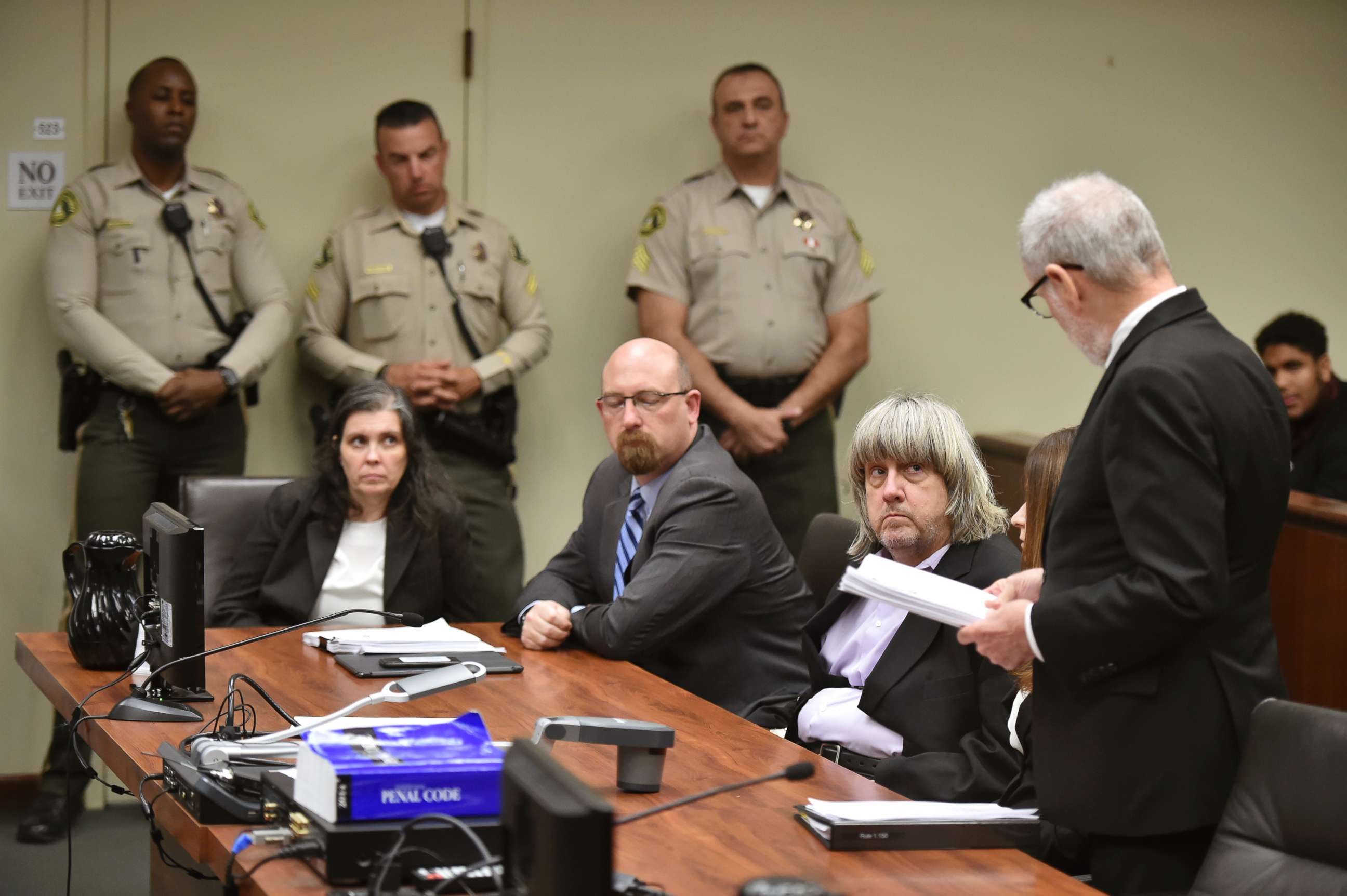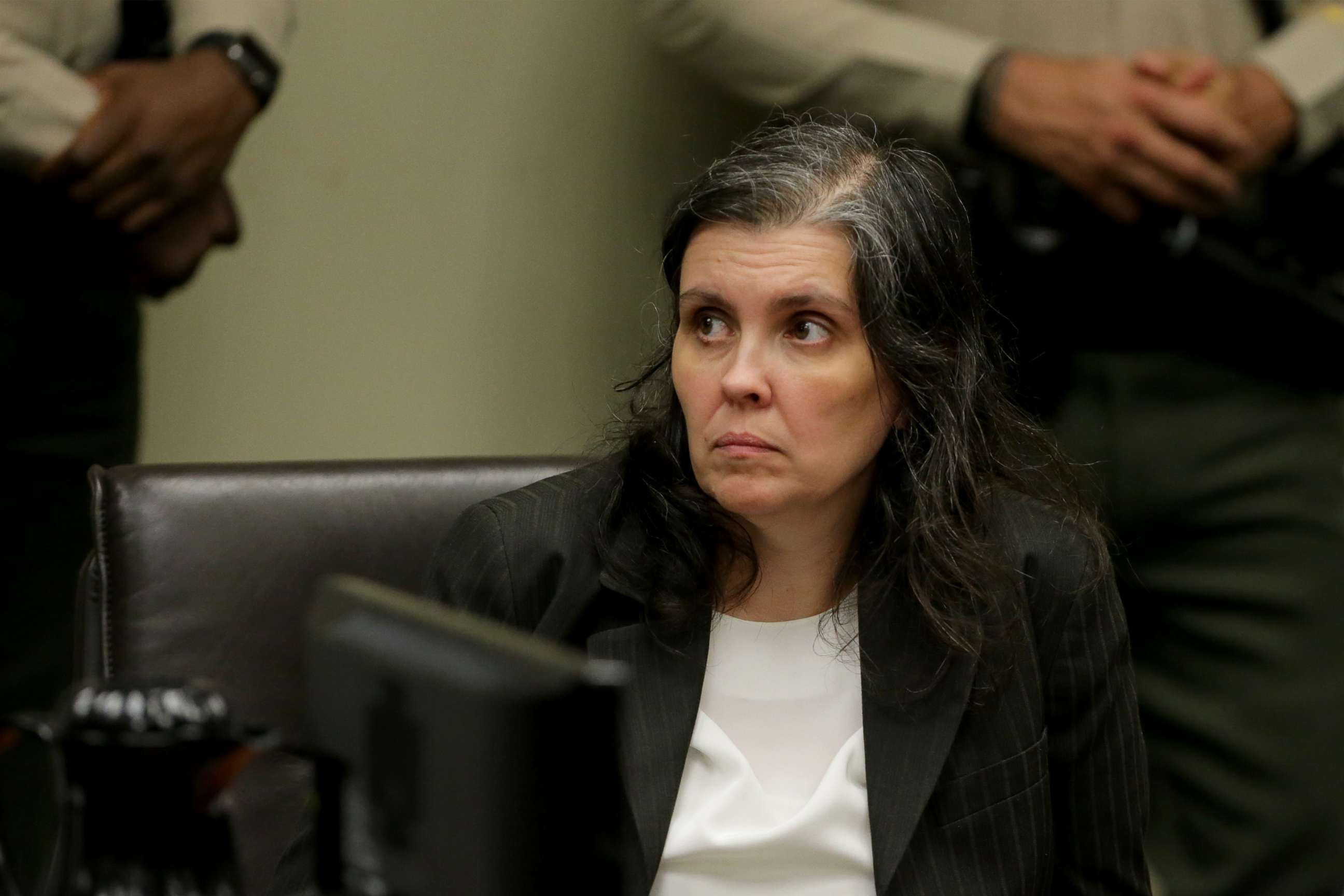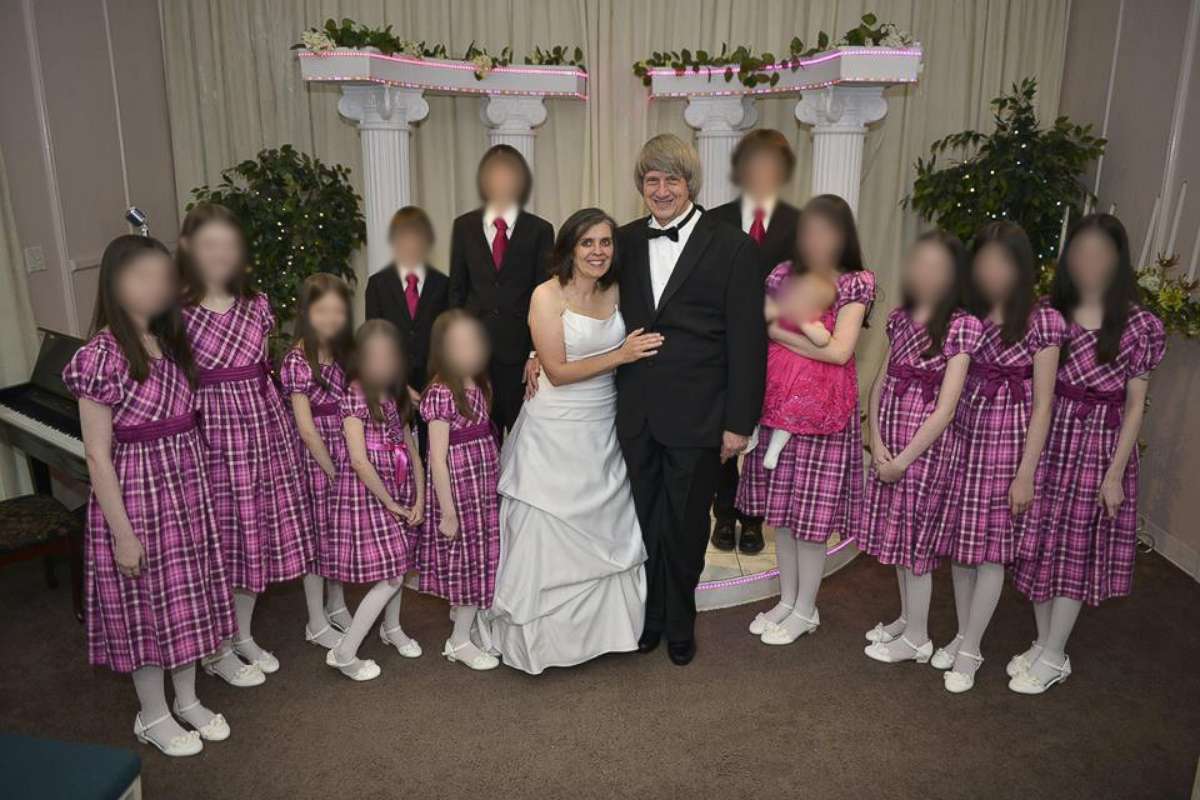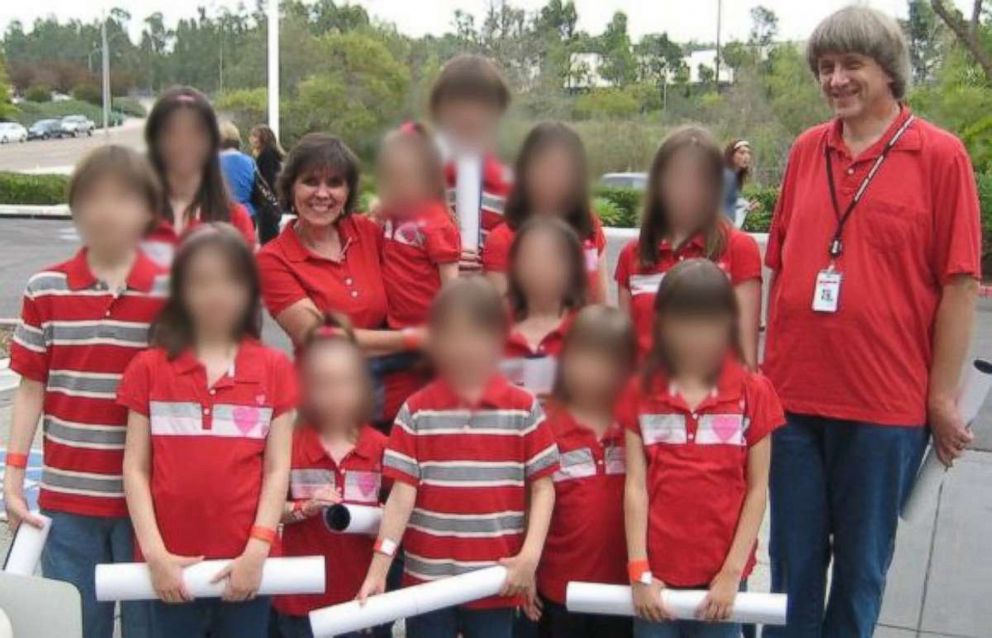Exclusive: Siblings allegedly held captive survived on peanut butter sandwiches
Twelve of the 13 siblings were allegedly held captive by their parents.
Peanut butter. The Turpin siblings detest peanut butter.
That's because 12 of the 13 siblings authorities say were systematically starved and tortured for years subsisted mostly on peanut butter sandwiches -- without jelly.
It was one the many new details revealed in an exclusive interview with Mark Uffer, CEO of the Corona Regional Medical Center, which had cared for the seven adult siblings since the middle of January.

"What initially started out as patients coming in through the emergency room turned into sort of a higher calling for all of us," Uffer told ABC News. "We essentially adopted them. We recognized that they were in a bad place when they came here.
"We just took a personal interest in them,” he added.
In the first hours of what would become a two-month long stay at the hospital, staff scurried to buy the Turpins clothes, out of their own pockets. The ones in which they’d been rescued smelled so foul they had to be destroyed.
The adults were so underweight they all required children’s clothes. The seven siblings were sequestered into their own large room, which was guarded 24 hours a day.
But this was, after all, a hospital. It didn’t offer services like laundry to its patients. So nurses and even the hospital’s communication director, Linda Pearson, began taking the siblings’ laundry home and washing it themselves.
They’d bring it back fresh and folded.

What Uffer describes is a group of adults with raw intelligence but zero world experience beyond the four bedroom home in which police say their parents held them captive. They didn’t know how to wash their hair, brush their teeth or use money, among other basic skills, he said.
Though all of them were old enough to drive, none seemed to fully understand the mechanisms of seatbelts, sidewalks or stop signs, much less what to do behind the wheel, Uffer said.
They regarded their first tomato with the kind of suspicion reserved for an alien object, Uffer recalled. Same with those small, strangely colored and fuzzy fruit the staff offered them: berries. They told staff they’d never seen them before.
And they only tasted strawberries, raspberries and blueberries once they were assured they were mainstays of Uffer’s breakfasts.

David and Louise Turpin, the siblings' parents, are accused of shackling and starving them routinely, authorities said. The victims weren't released from their chains even to go to the bathroom, and would be punished for behaviors like washing above their wrists by being hogtied or shackled to a bed, sometimes for months at a time, prosecutors said.
The parents each face dozens of counts of torture, false imprisonment and child endangerment. Both parents have pleaded not guilty to all of the charges.
They were arrested in January after the couple's 17-year-old daughter scrambled out of their home's front window, called 911, and showed police pictures of her siblings in shackles, District Attorney Mike Hestrin said.
The teen had somehow accessed the internet in the weeks before her harrowing escape.
As prosecutors prepared a case against their parents, who face dozens of charges of torture, false imprisonment and child endangerment, the staff at Corona Regional began the monumental task of overseeing the siblings' physical recovery. The eldest was 29 years old but had the weight -- 82 pounds -- of an 11 year-old girl.
Much more time consuming, the staff said, will be repairing their damaged wards’ psychological states. They coached them in the most basic life skills and say they nourished them with what they seemed to need most: love.
Uffer, who spent part of the interview choking back tears, said the siblings came to the hospital bereft of everything. He says they’d never owned shoes.
On one of the first days, he recounted, the staff bought each of them a pair of shoes -- their first. But the Turpins feared taking them off, lest they be taken away.
So, they slept in them.
“Maybe more than one night,” said Uffer. "They were afraid that anything that they got was going to be taken away ... anything that they got, there was always a question -- at least from one or two of them -- ‘Is anybody going to take my things?'” he added.

Choking up again, Uffer said he promised them that as long as they were at his hospital, nothing would be taken away from them.
"I think they really thrived on the attention from the nurses and the staff," Uffer said. "When they saw certain nurses, they would run to them, literally, and surround them, and it was quite an experience. A little bit overwhelming when you first experienced it."
Meanwhile, when Uffer is not running the hospital, he is a musician. He plays drums in a rock and roll band, but can also play guitar. So he brought one in to show the siblings.
"They had never seen one before, maybe on television or in pictures, but to actually physically hold a guitar -- that was heartwarming to watch them," Uffer said. "They didn’t know what to do with it, but they liked the sounds it made."
The siblings began tinkering, and within a short time, says Uffer, they’d mastered a couple of cords each.

ABC News has interviewed multiple people who’ve spent time with the siblings, whose lives until recently had been lived in near-complete isolation. Their naiveté and complete lack of guile makes them utterly charming, according to those who’ve interacted with them.
But perhaps none were as smitten with them as those who spent countless days with them at the hospital. The day the public guardian took the seven siblings away to live in their first real home, the siblings kept slipping out of the vehicles and trying to sneak back into the hospital. Everyone cried.
Uffer says he is concerned with the public guardian, which has cut off all contact between the children and the hospital, despite psychologists and the siblings’ own attorney’s recognition that continuity of care for the siblings is critical to their recovery.
The public guardian said she could not comment.
The young adults, ages 18 to 29, were taken to an undisclosed rural house by their attorney and a public guardian on Thursday. Uffer and the siblings’ attorney, Jack Osborn, said it could take years before they're ready to live on their own.
"They have to learn basic skills -- shopping, cooking, laundry, things that we all take for granted," said Uffer. "I don't think they have those basic skills yet. It's going to take some work.”
Years of work, he continued.




